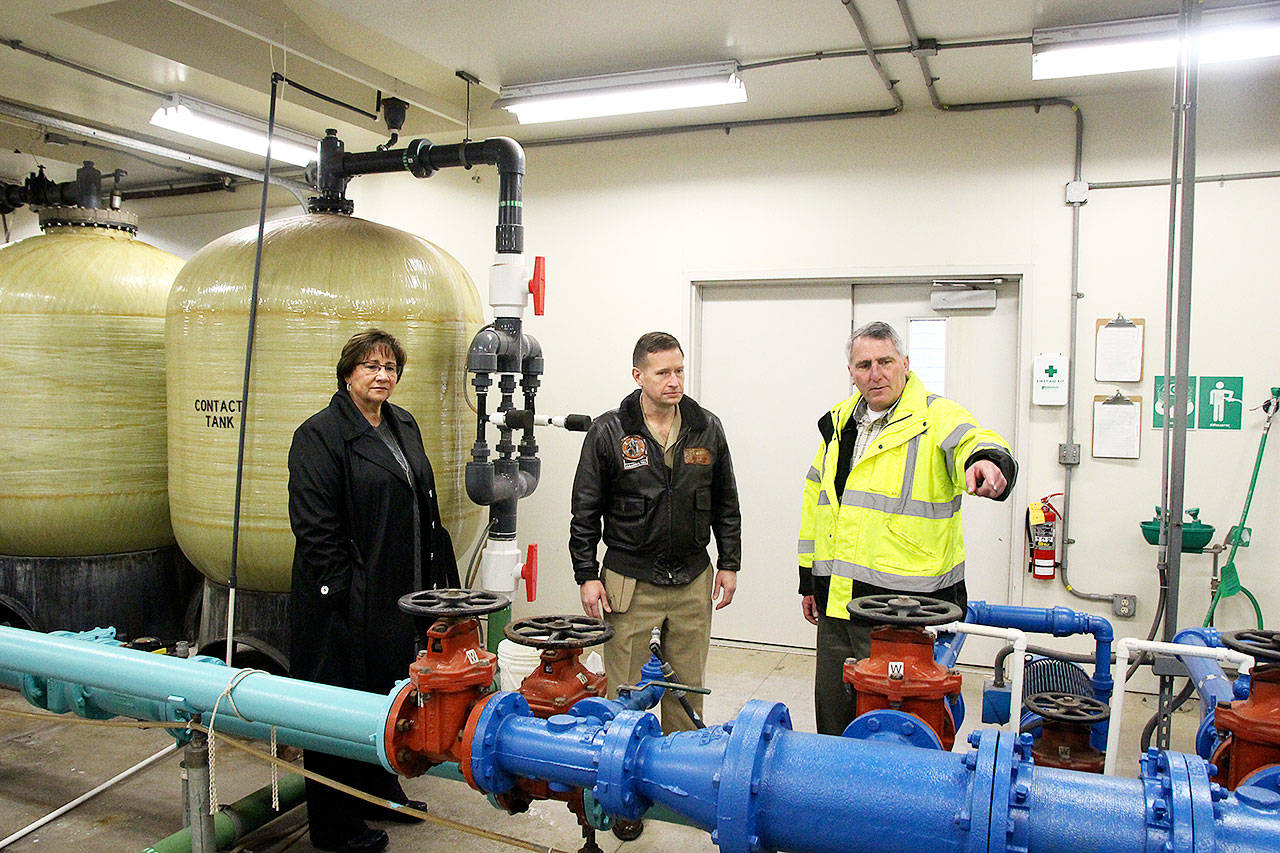Coupeville’s water should taste much better by June. It also shouldn’t have any detectable traces of toxic chemicals from firefighting foam used by the Navy.
The Navy is footing an estimated $5-7 million bill to install a granular activated carbon filtration system and to extend the town’s water service to private wells that tested above the Environmental Protection Agency’s lifetime advisory level of per- and polyfluoroalkyl substances, or PFAS.
Coupeville’s water tested below the EPA’s lifetime advisory level and the compounds aren’t regulated. However, a more recent study recommends lower levels, and Mayor Molly Hughes and base commanding officer Capt. Matt Arny said they wanted to get ahead of new regulations that may be implemented.
The chemicals have been correlated with adverse reproductive and developmental effects and certain types of cancer, according to the EPA.
Contractors broke ground this month on a two-story addition to the town’s existing treatment system. It will contain two granular activated carbon filters with room to grow, according to Joe Grogan, Coupeville utility superintendent.
The new filters are about twice the size of the town’s existing filters, which are designed to reduce iron and manganese.
Water from the town’s multiple wells will still pump through these filters first before going through the new process.
“We’ll have some pretty good tasting water when we’re done,” Grogan said.
Carbon molecules are attractive and they tend to seek out molecules that they can bond with.
Activated carbon is also very porous and provides a large surface area in which contaminants may absorb, according to the EPA’s Drinking Water Treatability Database.
Grogan said the process was selected because it doesn’t waste water and it will remove PFAS compounds to undetectable levels. He said it hasn’t been determined yet if another operator will be hired once the plant’s expansion is complete, which Arny said is on track to happen in June.
The new water treatment plant is expected to cost approximately $2.6 million, according to a Navy spokesman.
The project also includes plans to extend town water service to the eight private wells near Outlying Field Coupeville that tested above the EPA’s lifetime advisory level. For these property owners, the Navy will pay for the hook-up fee. Others in the area may connect, but they’ll have to pay the fee themselves.



